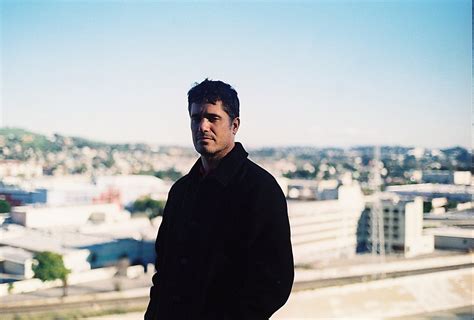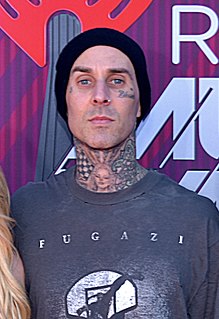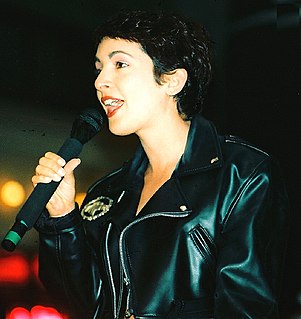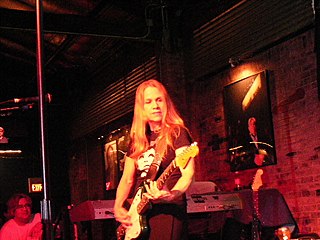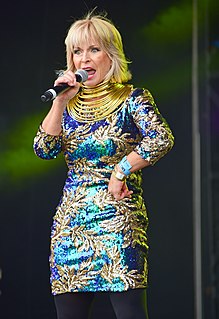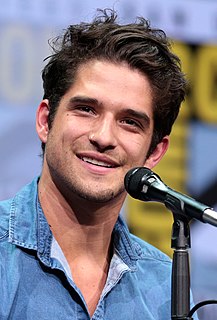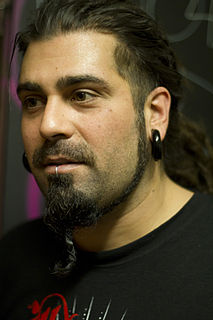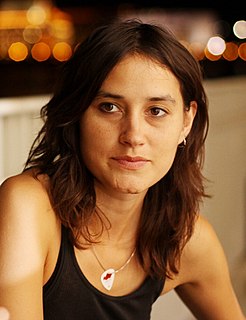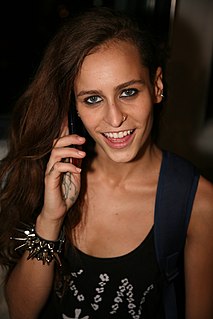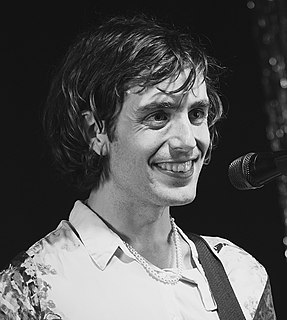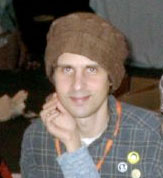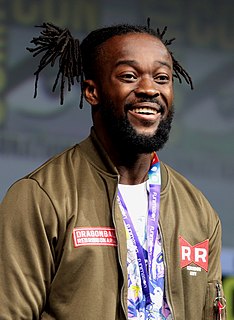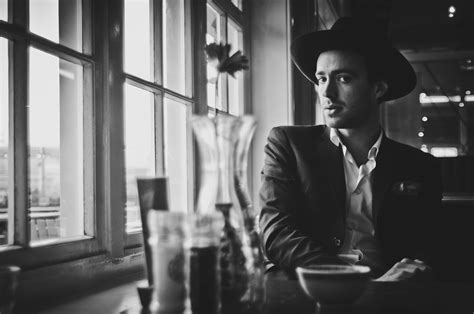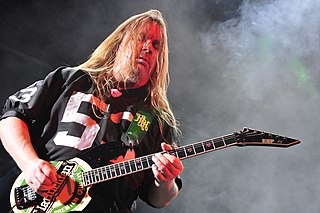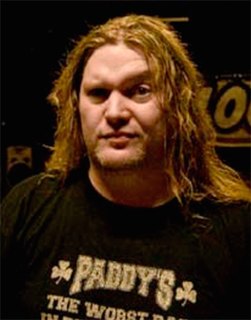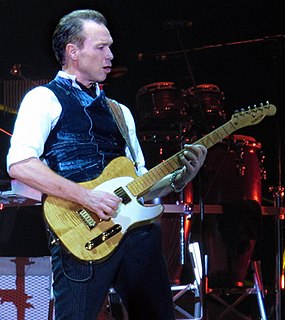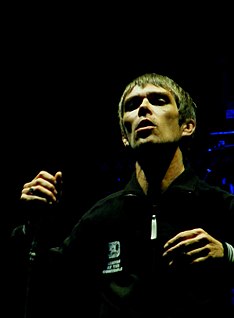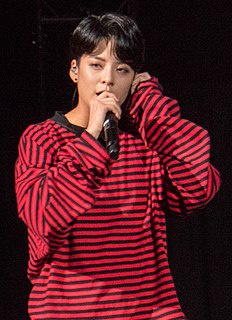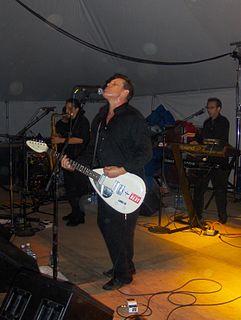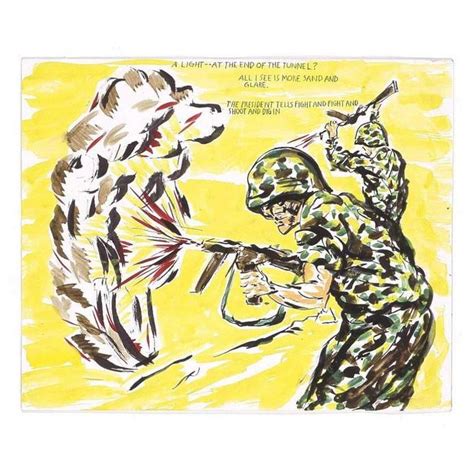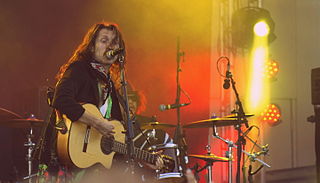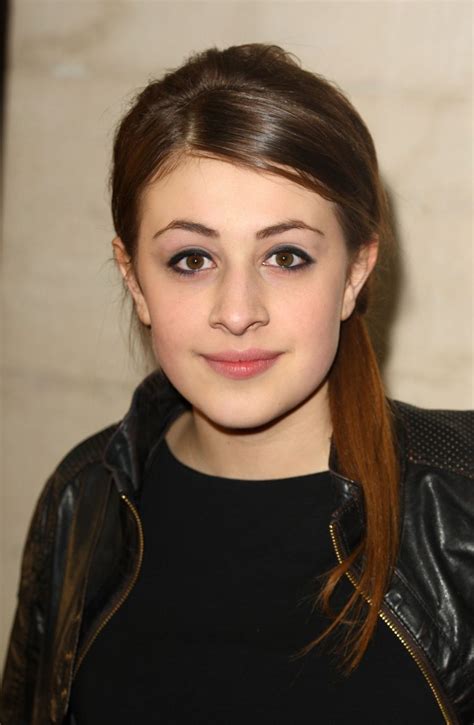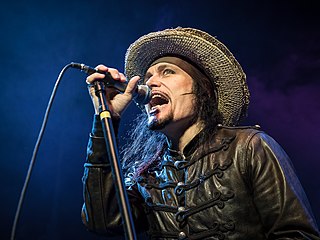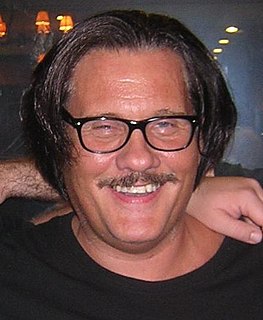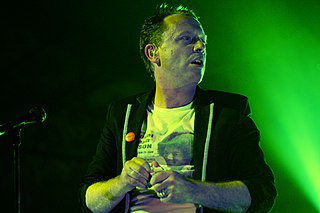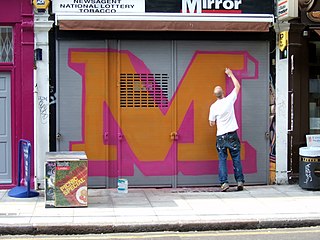Top 1200 Punk Quotes & Sayings - Page 3
Explore popular Punk quotes.
Last updated on November 21, 2024.
Punk can be a mental ghetto. People get into it and make all these rules and pretty soon they're worse than born again Christians and have stupid three hour conversation about things like, which band is a sellout and is straight edge cool or un-cool and it's just completely idiotic. So punk has taught me the aesthetic of the outsider, which is great, but it's also taught me not to get involved in petty little cults.
Seeing Taylor Swift live in 2013 is seeing a maestro at the top of her or anyone's game. No other pop auteur can touch her right now for emotional excess or musical reach - her punk is so punk, her disco is so disco. The red sequins on her guitar match the ones on her microphone, her shoes and 80 percent of the crowd.
I had to get a driver's license and drive to St. Louis to find the punk-rock scene that was happening there. And there was a punk-rock scene. It was sweet. It was real. It was like everywhere else in the county. It was a handful of people who were feeling the same pull, and, of course, it was like the Island of Misfit Toys in Rudolph the Red-Nosed Reindeer [1964]. Just the freaks, the fags, the fat girls, the unbelievable eccentrics .
I made the big turnaround in the early Nineties when I started hearing all the tenth generation punk bands like Green Day and Offspring and all those people. It just made me fall in love with punk again and remember my roots, and since that time I've always wanted to do more of that kind of music again.
You can hear a real shift. You listen to the late 80s recordings, you'll hear us engaging with the audience, dealing with the issues surrounding punk shows at the time. Back then, people thought you had to be a skinhead and beat the crap out of everybody when you went to a punk show. Come the early 90s, when you had this so-called grunge stuff and when videos became so dominant, you had this totally huge shift in the culture of shows.
It's funny how film is the slowest art form to adapt to freedom. It's had freedom all along. It could've done whatever it wanted to. You know the same freedom that do-it-yourself punk and post-punk musicians had in the late 70s and ever since. That's about the time I started getting interested in film, and I assumed that film would be moving along with the other pop culture forms. Its finally done it but it's taken decades for it to catch up just to basement band level.
It seems like the powers that be are really trying to separate everything and really divide the genres and divide the trends. If you're metal and you don't sound like Slayer would sound now, then you're not metal. If you're punk rock and you don't sound like and preach about what The Sex Pistols would have preached about back in the day, then you're not really punk rock.
As a late teenager, the punk movement pushed me further. In particular, the Clash, which happened to leak through the time of disco, showed me that there was this cross-cultural sound that could cut across genres and audiences. Like punk was to disco, rap music was a rebellion against R&B, which had adopted disco and made it worse.
I can say is our point of reference - and I think that does make us different from some bands and similar to other bands too. But it's just that spirit - it's sort of like a punk spirit - but it's not punk meaning or as in like "I'm here and I'm going to get thrashy and bloody on-stage" - but, we're not going to listen to the rules and the roles already set in place. We just want to make music that is heartfelt and feels good and sounds good to our ears, and hopefully to many other's ears as well.
The whole point was just to be yourself, no matter what that was. You didn't have to fit into a certain punk-rock cliché. Create whatever your compelled to create. People were putting out their own records, and it just seemed natural to put out my own magazine. When I was really young, I started making magazines and little books, just folded-over pieces of typing paper, so when I discovered punk rock, it really blew my mind. I played in bands and stuff, but making my own zines seemed like an inherent part of that scene.
With Punk, I consider him to be like a brother to me. He's one of the guys who took me under his wing when I first came. So we've been able to maintain a good relationship. And there are very few people in the business that you can call true friends, so I consider Punk to be that and more. So yes, 'road wife' is the term we used to sum that all up.
When I was young I wanted to make films and then I got into folk music when I was about 12, and started going to this folk club in Auckland. My dad [Barry Andrews] was in punk and post-punk bands, so I guess it was a side of music I hadn't really listened to before - the really narrative form of songwriting.
Woody Weatherman showed me two beats, the "do do dat, do do dat" rock beat and the "ooh at ooh at ooh at" punk beat and other than that I was pretty limited. I had just gotten a drum kit for Christmas, which I was stoked about so I was ready to go. Back then, the prerequisite for playing punk rock drums wasn't very high, it was really pretty generic as I'm sure you can imagine.
For years now I have run a kitchen-sink punk salon in my house, called Salon du Gay. In the early days, people would pay for a riot grrrl bob or a passable bleach job with a mixtape, $3 or a selection of baked goods - whichever they could afford. More recently though, with Gossip doing well, I've performed these punk hair transformations for free.
If you purposefully look to shock people, it isn't funny. That's what 50 million dollar Hollywood comedies do; try to be shocking and dirty. They aren't really. It isn't enough to shock. It's easy to shock. Real surprise is what I'm after. Those early movies, we had drugs, which you weren't supposed to show. You weren't supposed to shoot up. We would make fun of hippies. I think that we were punk before there was punk.
CM has always stood for one thing: Chicago Made. Chick Magnet? That's preposterous. Girls don't like me. I was born and raised in Chicago. The city made me. Punk is just because I've always been a smart-mouthed, wise-ass punk. I still am. I was the guy, if a bunch of football players were messing with one of my friends, I'd walk over there and spit in their face.
The 1970s was probably the most exciting decade to be a teenager, from discovering Little Richard at the end of the 1960s to glam rock to punk rock to electro music. So much happened in that 10-year span. There were so many musical revolutions. Some were happening at the same time. You had disco going on behind punk. You had Michael Jackson. You had the Sex Pistols.
When I was nine years old, I started playing guitar, and I took classical guitar lessons and studied music theory. And played jazz for a while. And then when I was around fourteen years old, I discovered punk rock. And so I then tried to unlearn everything I had learned in classical music and jazz so I could play in punk rock bands.
My music doesn't really sound like punk music, it's acoustic. And it doesn't really sound like folk music 'cause I'm thrashing too hard and emoting a little too much for the sort of introspective, respectful, sort-of folk genre thing. I'm really into punk and folk as music that comes out of communities and is very genuine and very immediate and not commercial.
We found that if you played a bunch of punk singles in a row, people would dance like crazy and then get worn out and go somewhere else in the house. And if you played reggae all the time, people ended up leaning against the walls and nodding their head. But if you mixed it up, the floor got more and more packed, and the energy from the two types of music seemed to feed into each other, and the adrenaline from the punk, and the seductive sway of the reggae seemed to fit together.
I think we're at the end of all the revivals. People would forget about punk for a while, and then a magazine would do a special issue on the 10th anniversary of punk, for example, and bring it back. But now you can find collectors or friends with the same interest through the Internet at any time, so nothing is ever really gone. Everything is always there.
For me, creating the clothes of Givenchy is the way to make my tribe. It's related to religion, too, because it's people trying to find identity - the young generation is looking for tribes. You have the hip-hop tribes, the punk tribes, the rockers, you have the hipsters, the bourgeois ... The fact of the tribe is that it's like a religion. Punk is like a religion, because it's a belief.
I've always thought that "punk" wasn't really a genre. My band started in Olympia where K Records was and K Records put out music that didn't sound super loud and aggressive. And yet they were punk because they were creating culture in their own community instead of taking their cue from MTV about what was real music and what was cool. It wasn't about a certain fashion. It was about your ideology, it was about creating a community and doing it on your own and not having to rely on, kinda, "The Man" to brand you and say that you were okay.
My drawing came out of editorial-style cartoons. Music was one thing and art was another, and there weren't really any standards for my art. My work was just drawings. They weren't done with any aspirations of becoming a part of punk scene. They weren't about punk. They were just collections of drawings, some of which I xeroxed and sold.
My first passion was running: I excelled at that starting till the end of the high school. I pretty much cover about 20 miles a night on stage. I basically rechanneled all the athleticism and adrenaline, and everything that's exciting about sports into music. That was my secret weapon, because in Ukrainian punk rock scene - where everything was very gloomy - being athletic was not cool. I didn't publicize anything about my sport past, but I rolled in onstage with a background nobody had, and I became instantly recognized as the wildest performer in the punk-rock scene.
I went to a fancy dress party as a punk. I went through a stage of being a wannabe punk from the '70s. So, my next-door neighbours were like hardcore punks and I went to see The Vibrators and came home with a T-shirt that said "The Vibrators". My mum said: "You're not going out in that!" But I was really into it. I did soon grow out of it. But that's probably the most embarrassing story I have. I really am just quite normal.
If you look at who emerged on the horizon 12 to 18 months after ECW stopped running shows, I think it's very reasonable to believe that we would have picked up CM Punk and several of the other young stars that emerged in the independent scene in the early part of that decade. Punk obviously is the one that I would hope I would have noticed.
Acknowledging that we lose is the overarching theme in everything in Stars. To me, that's what punk means. Stars is a punk band because we acknowledge loss. We're not trying to win. We're not trying to project victory. You win alone. I'm not interested in singing for the one winner in the room; I'm interested in singing for all of the losers in the room.
